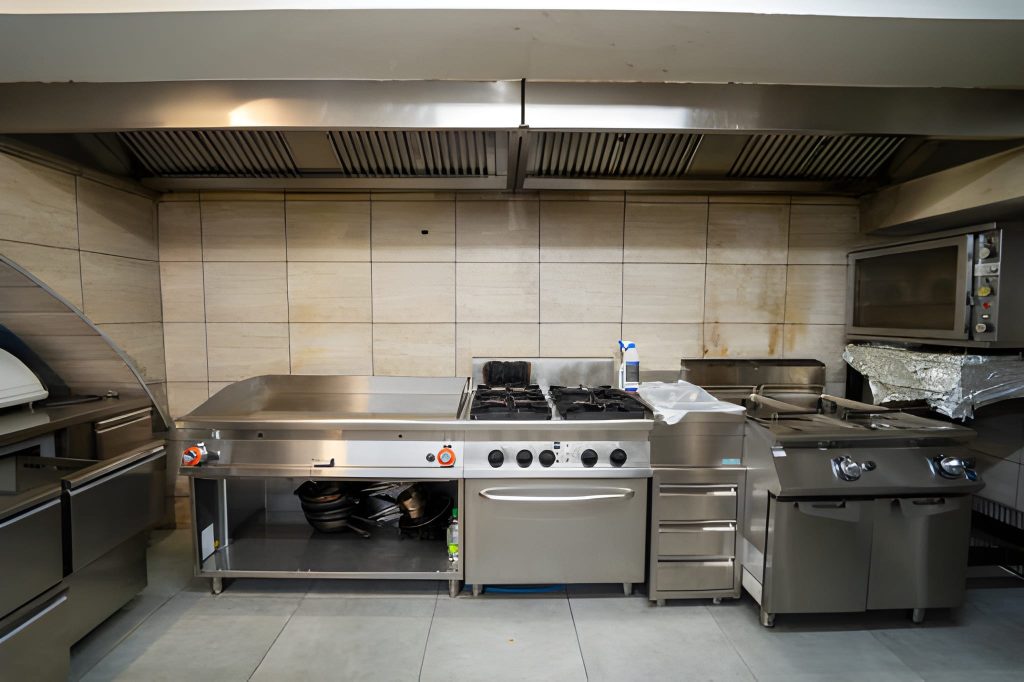
Restaurant hood systems play a vital role in kitchen safety and air quality, yet many Detroit establishments face recurring issues that can lead to costly repairs and potential hazards. Regular maintenance checks and early intervention can prevent most common problems, including grease buildup, airflow restrictions, and mechanical failures.
In Detroit’s bustling restaurant scene, hood system problems often stem from inadequate cleaning schedules and delayed repairs. Grease accumulation represents the most significant threat, creating fire risks and reducing system efficiency. When combined with Michigan’s varying seasonal temperatures, these issues can escalate quickly if left unaddressed.
Professional inspections and proper maintenance protocols protect both equipment and staff while ensuring compliance with local safety regulations. A well-maintained hood system not only extends equipment life but also maintains optimal kitchen air quality and temperature control.
Key Takeaways
- Regular cleaning prevents grease buildup and reduces fire hazards
- Professional inspections catch mechanical issues before they become emergencies
- Proper maintenance extends system lifespan and ensures optimal performance
Common Hood System Issues in Detroit Restaurants
Detroit restaurants face specific challenges with their commercial hood systems, particularly due to the city’s high volume of grease-heavy cuisine and older building infrastructure.
Clogged Grease Filters
Grease accumulation in filters remains the top issue for Detroit restaurants, especially in establishments serving deep-fried foods and burgers. Filters can become saturated within 2-3 weeks of regular cooking operations.
Regular cleaning schedules often fall behind when restaurants experience high-volume periods, leading to decreased efficiency and potential fire hazards.
Warning Signs of Clogged Filters:
- Visible grease dripping
- Reduced airflow
- Strong cooking odors in dining areas
- Increased smoke accumulation
Faulty Exhaust Fans
Detroit’s temperature fluctuations put significant strain on exhaust fan motors and belts. Many local restaurants report fan failures during peak summer months when cooling demands are highest.
Motor bearings frequently wear out due to continuous operation, creating unusual noises and vibrations that indicate impending failure.
Common Fan Issues:
- Belt misalignment
- Bearing wear
- Motor overheating
- Inadequate maintenance access
Inadequate Ventilation Design
Many Detroit restaurants operate in historic buildings with ventilation systems that weren’t designed for modern cooking equipment. These older systems often struggle to handle current kitchen loads.
Space constraints in legacy buildings limit proper duct placement and sizing. This creates airflow bottlenecks and reduces system efficiency.
Design Limitations:
- Undersized duct work
- Poor makeup air distribution
- Incorrect hood placement
- Limited ceiling height clearance
Preventing Hood System Failures: Expert Strategies
Professional preventive measures and consistent maintenance protocols form the foundation of a reliable commercial kitchen hood system. Regular attention to cleaning, inspections, and proper staff training dramatically reduces fire risks and equipment failures.
Routine Professional Cleaning
Professional hood cleaning services use specialized degreasers and tools to remove accumulated grease from all system components. A certified cleaning team targets hard-to-reach areas like duct corners and fan housings.
The National Fire Protection Association (NFPA) mandates specific cleaning frequencies based on cooking volume:
- Monthly: High-volume cooking operations (24/7 facilities)
- Quarterly: Moderate-volume operations (12-16 hours daily)
- Semi-annually: Low-volume operations (4-8 hours daily)
Thorough cleaning includes detailed documentation and before/after photos to verify compliance with safety standards.
Scheduled Maintenance Inspections
Certified technicians should perform comprehensive system inspections every 3-6 months. These checks focus on critical components that commonly fail:
- Fan bearings and belts for wear
- Electrical connections and controls
- Ductwork integrity and seals
- Grease filter condition
- Makeup air system function
Documentation of each inspection helps track system performance and identify emerging issues before they cause failures.
Proper Staff Training on Hood System Care
Kitchen staff need clear protocols for daily hood system maintenance tasks. Train employees to check and clean grease filters at the end of each shift.
Staff should know how to:
- Identify warning signs like unusual noises or odors
- Perform basic filter cleaning and replacement
- Follow proper cooking procedures to minimize grease buildup
- Maintain cleaning logs and inspection records
Regular refresher training keeps safety procedures fresh and ensures new employees learn proper system care protocols.
